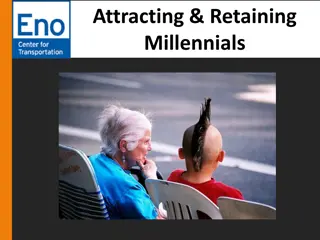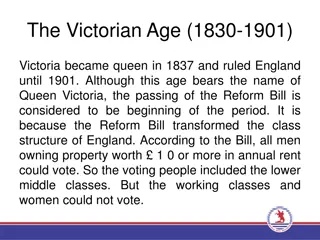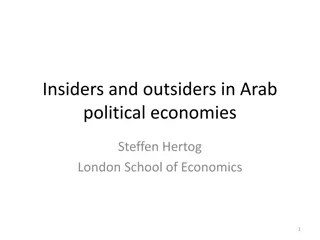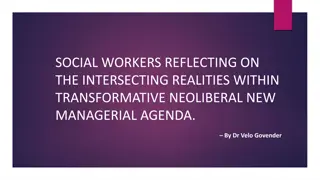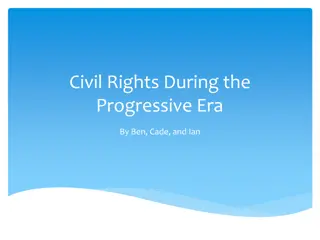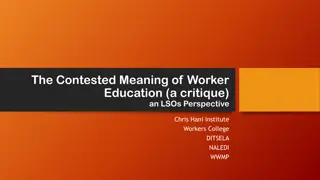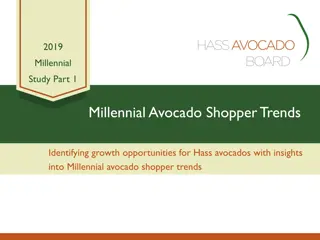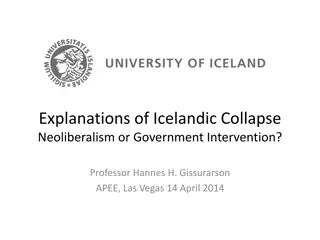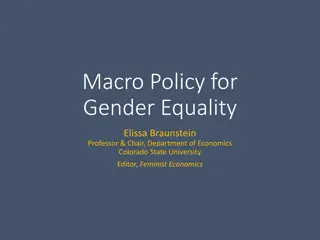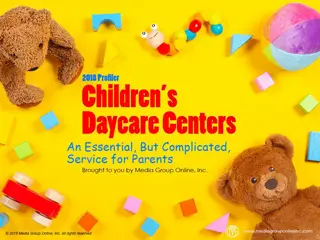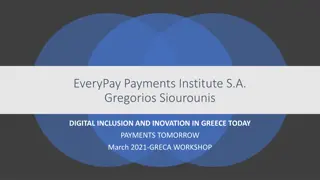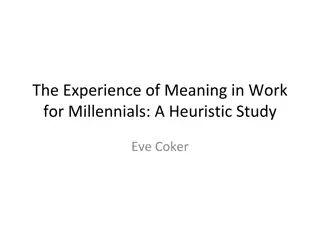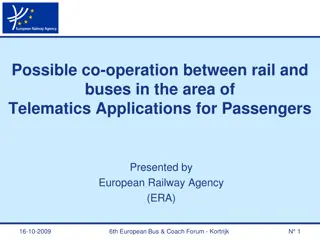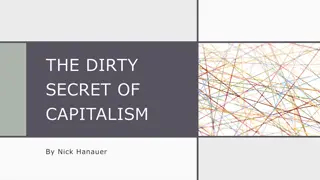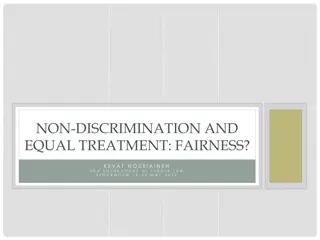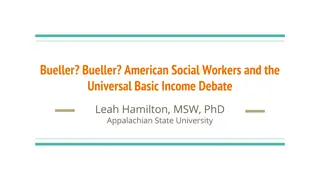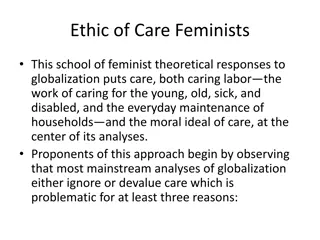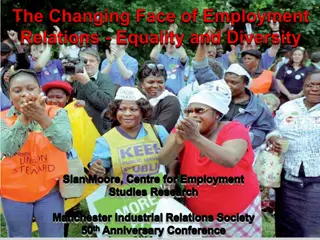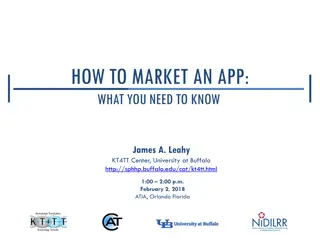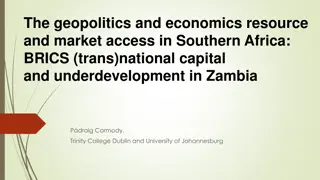Challenges Faced by Working-Class Millennials in the Neoliberal Era
Working-class Millennials experience delayed adulthood due to disappearing jobs, fragile families, and shrinking social supports. The research examines how economic instability shapes their adult selves, American Dream understanding, and failures to enter the middle class. Methods include in-depth interviews with working-class individuals and upper-class comparisons, revealing the impossibility of traditional paths to adulthood for the former.
Download Presentation

Please find below an Image/Link to download the presentation.
The content on the website is provided AS IS for your information and personal use only. It may not be sold, licensed, or shared on other websites without obtaining consent from the author.If you encounter any issues during the download, it is possible that the publisher has removed the file from their server.
You are allowed to download the files provided on this website for personal or commercial use, subject to the condition that they are used lawfully. All files are the property of their respective owners.
The content on the website is provided AS IS for your information and personal use only. It may not be sold, licensed, or shared on other websites without obtaining consent from the author.
E N D
Presentation Transcript
+ Pathways to Adulthood Opportunity, Safety Nets, and Self-Worth in the Neoliberal Era Jennifer M. Silva Sociology & Anthropology Bucknell University
+Millennial Characteristics Traditional markers of adulthood have become delayed, disorderly, reversible, or even foregone Delayed adulthood reflects increased opportunity for self- exploration and self-focus Millennials are too self- absorbed and entitled to grow up
+ In Context Disappearing jobs Fragile families Shrinking social supports and social safety nets Privatized risk Falling trust in institutions Cultural logic of self-reliance
+Research Questions How do working class men and women construct what it means to become an adult in contemporary America? How do economic and social instability shape working- class young people s adult selves, their understanding of the American Dream, and their futures? How do they explain their failures to enter middle class America, and how do they console themselves for such failings?
+Methods 100 in-depth, semi-structured interviews with men and women from working-class families. Working class defined as parents without college degrees. Sample was 60% white, 40% black, and split evenly by gender. Median age = 27 years. Recruited at gas stations, casual dining restaurants, coffee shops, fast food chains, retail chains, daycares, temporary agencies, community and regional colleges, military training sites, and police and fire stations. 120 additional interviews across the US with middle and upper class young adults
+The Impossibility of Tradition Working-class Millennials bounce from one unstable job to the next, relying on credit cards to pay their monthly bills. They lack the tools and knowledge to invest in their futures. Shocks such as injury or sickness often set them back on the road to adulthood, even when they try to get ahead.
+I wont grow upor I cant? I am looking for a new place. I don t have a job. My car is broken. It s like, what exactly can you do when your car is broken and you have no job, no real source of income, and you are making four or five hundred dollars a month in [military] drills. Where are you going to live, get your car fixed, on five hundred a month? I can t save making five hundred bucks a month. That just covers my bills. I have no savings to put down first and last on an apartment, no car to get a job. I find myself being like, oh what the hell? Can t it just be over? Can t I just go to Iraq right now? Send me two weeks ago so I got a paycheck already!
+Betrayal and Distrust Difficulty navigating the institutions that determine their future trajectories. Report being betrayed by higher education, the military, the legal system, the housing market, foster care, and health care system. This is in sharp contrast to the privatized social safety nets and guidance of the middle class
+Cheated by Education I knew I was smart and that I wasn t a straight C student, yet all my teachers, you know we had thirty kids in the class, and the teachers were just too busy unless you were destructive, you really didn t get attention. I guess knowing, once I knew that I had ADHD, knowing if somebody had seen it in me earlier, I could have gotten so much further. Now I am medicated, which makes a world of difference. It is just bad. If somebody had just known sometimes I feel cheated out of life, I could have been in college by now. I could have had a real live career that is not just a cook. That sounds terrible.
+Middle-Class Pathways Middle-class parents mobilize a vast array of economic, social, and cultural resources to launch their children into adulthood They rely on private safety nets to manage risks
+Self-Reliance as Self-Worth I have a buddy of mine who has something called spina bifida. And his parents have brought him up babying him, giving him everything he wanted, and everything else. Then I have a buddy who only has one leg. This other guy s parents [his friend who only has one leg], they said, you only got one leg, deal with it. We re not going to baby you. Which I think is the right way to do it. Because there s nobody in this world that s gonna baby you. When you get out from under the wing of mommy and daddy, the government doesn t care if you re disabled. They re gonna tax you just like everybody else.You gotta make a living. Be it however little you can make or whatever.
+Neoliberal Selfhood Naming structural barriers to achievement are interpreted as a crutch. Self-reliance becomes a sign of moral worth. Working-class youth reject institutions and embrace isolation as the only way to survive.



